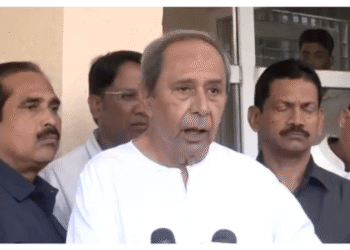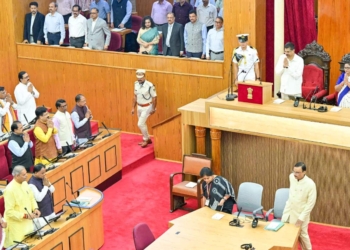The World Health Organization (WHO) has sounded the alarm on global health progress in its latest World Health Statistics report for 2025.
The report highlights the impact of COVID-19, which caused a dramatic decline in global life expectancy—dropping 1.8 years between 2019 and 2021, the largest recorded setback in modern history.
Mental health took a toll during this period, with increased levels of anxiety and depression reducing global healthy life expectancy by approximately six weeks. While some advances were made—such as improved access to water and sanitation—key health indicators have failed to meet expectations.
Maternal and Child Deaths: A Troubling Slowdown
One of the most concerning findings is the stagnation in maternal and child mortality rates. After decades of progress, maternal deaths have stopped declining at a sufficient rate, and child deaths under five years old remain alarmingly high. WHO estimates that unless urgent measures are taken, the world risks losing the opportunity to prevent 700,000 maternal deaths and 8 million child deaths between 2024 and 2030.
The Rise of Noncommunicable Diseases
Chronic diseases such as heart disease, stroke, diabetes, and cancer have emerged as the leading causes of premature death worldwide. WHO warns that the global effort to reduce noncommunicable disease-related deaths by one-third by 2030 is severely off track. While tobacco use is declining and alcohol consumption has dropped slightly, major health threats like air pollution and untreated chronic illnesses continue to drive high mortality rates.
Health Worker Crisis & Infectious Disease Trends
A looming crisis in global healthcare is the shortage of skilled health workers. WHO estimates a shortfall of 11.1 million health workers by 2030, with nearly 70% of the deficit concentrated in Africa and the Eastern Mediterranean regions. Meanwhile, infectious diseases show mixed progress—HIV and tuberculosis rates have dropped, but malaria is resurging, and antimicrobial resistance remains a major concern.
A Call to Action
WHO is urging governments worldwide to take immediate action to restore global health momentum. The organization stresses the importance of investing in primary healthcare, strengthening health systems, and ensuring access to essential health services. “Behind every data point is a life lost too soon,” WHO Director-General Dr. Tedros Adhanom Ghebreyesus stated. “Every government must act with urgency to protect their people.”
The 2025 World Health Statistics report serves as a wake-up call for policymakers, healthcare professionals, and communities worldwide. As global health progress stalls, bold investments and policy changes are needed to safeguard future generations.






























